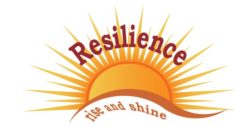Welcome to some of our most popular resources!
by Lori Ashcraft, Ph.D
We want to make some of our most “move the needle” resources available to our readers in case what we’ve developed can be helpful to others. We will continue to add new resources and if what you see here doesn’t fit your needs, let us know. We probably have something that will.
Touching Home: Understanding the Impact of Addiction
The only person with an addiction I knew of when I was a kid was Herald, a war veteran who lived about a half mile from our cabin, down a dusty dirt road – no running water, no electricity. He would pass by our place every afternoon on his mile‐long pilgrimage to the country store to buy another bottle of red Gallo wine. He paid with the proceeds of his carefully meted out veteran’s check that came without fail, general delivery, to the local post office. He was usually friendly and almost always incoherent. (click the title link above to read the complete story)
Four Players in an Ongoing Saga of Service Provision
The “system” rarely questioned itself when plans and processes didn’t work out well. The usual scapegoats were “the patients.” They were an easy target for blame since they were not equipped to fight back. When they did, their approach was primitive and was seen as proof that they had no credibility. This lack of credibility became convenient for policy makers and politicians who were unwilling to admit their approach to community treatment was seriously flawed. (click the title link above to read the complete story)
Strengths Bank
The Strengths Bank is a bank of social capital. It provides a framework for recognizing and building personal strengths and then learning how to invest and grow them. It emphasizes the importance of putting strengths into action and of testing their effectiveness. It helps people in recovery build social capital — the currency that people value and trade in group or community settings. I first created this game to use with people in recovery who wanted to have more social capital so they could gain a valued role in their communities. The game worked very well. Later, I saw how it could be useful for families, and finally I saw how it could be used to strengthen work teams. With families and teams, the fun part is getting to know everyone’s strengths and challenges and then trading them back and forth in order to strengthen them. (click the title link above to read the complete story)
William – A Story of a Positive Focus
One situation we often face in providing recovery services is that of going through a painful and stressful event with someone who is having a challenging life experiences. If we aren’t careful, aren’t paying attention, we can be pulled down to the same low level of consciousness the person is experiencing. Once this happens we are left with no strength or positive energy to lend them so they can begin to manage their problems. Another pitfall we may fall into is caring for someone so much that it ends up as caretaking and sometimes even controlling them. When this happens, we’re not only operating from the negative levels of consciousness, but we’re also keeping the person there as well. (click the title link above to read the complete story)
Four Important Lessons for Case Managers
A Buddhist proverb says, “When the student is ready, the teacher appears.” In fact, case management is one of my most persistent teachers. Case management continues to teach me something about myself, about the people we serve, or about the system that has tried to regulate it. Let me retrace the steps and see what emerges.
My next case management job is in the foster care system. Foster care is more complex than the previous assignments. There is a larger cast of characters to orchestrate on behalf of the children – natural parents, schools, foster parents, the court, juvenile justice, medical providers. In terms of my own growth, I realize I need to step up and play a stronger role or the best interests of the children would not be served. (click the title link above to read the complete story)
Debbie’s Story
My next case management job is in the foster care system. Foster care is more complex than the previous assignments. There is a larger cast of characters to orchestrate on behalf of the children – natural parents, schools, foster parents, the court, juvenile justice, medical providers. In terms of my own growth, I realize I need to step up and play a stronger role or the best interests of the children would not be served. (click the title link above to read the complete story)
